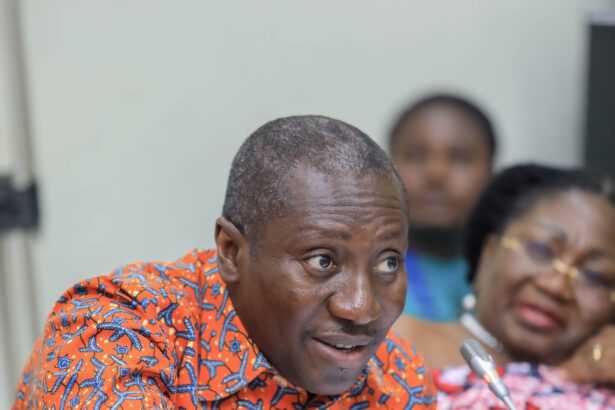President John Dramani Mahama’s recent reassignment of acting chief executives at key state agencies has ignited a fierce debate in Ghana’s Parliament, with the opposition Minority warning the moves risk destabilizing governance and eroding investor confidence.
Minority Leader Alexander Afenyo-Markin slammed the decision as premature and politically tone-deaf, arguing it undermines Mahama’s authority just months into his term.
“Turning the President into a lame duck this early sends alarming signals to the investment community,” Afenyo-Markin cautioned during a heated parliamentary session. “Frequent leadership changes create uncertainty—the exact environment investors flee.” His remarks reflect broader anxieties over Ghana’s economic stability as it navigates IMF-backed reforms and seeks to attract foreign capital amid a debt crisis.
The reshuffle, affecting agencies like the Environmental Protection Authority and National Petroleum Authority, replaced acting CEOs appointed during Mahama’s transition into office. While the Presidency has not detailed reasons for the changes, critics speculate internal party dynamics or performance reviews may be at play.
Majority Leader Mahama Ayariga defended the moves, stressing that acting roles are inherently temporary. “Acting appointments exist precisely to allow flexibility. The President isn’t bound to retain them indefinitely,” he argued, dismissing Minority concerns as “political theatrics.” Ayariga emphasized that substantive appointments would follow formal vetting processes, aligning with constitutional norms.
Investor Nerves and Governance Risks
Analysts note that while acting positions are common in transitions, abrupt changes can unsettle markets. “Investors crave predictability,” said Accra-based economist Nana Kojo Mensah. “Even procedural reshuffles, if frequent, feed perceptions of instability.” Ghana’s cedi, already volatile, dipped slightly following the news—a reaction some traders linked to the political spat.
The controversy also exposes fissures within Mahama’s administration. Sources suggest tensions between legacy appointees and the President’s new team may be driving the shake-up. “This isn’t just about efficiency; it’s about control,” a ruling party insider confided, requesting anonymity.
Broader Implications
The debate taps into longstanding critiques of Ghana’s “acting culture,” where officials operate in limbo for months, hampering decisive policymaking. While Ayariga insists the President is “resetting his vision,” opposition figures warn the approach could stall critical projects, from energy sector reforms to environmental regulations.
For now, Mahama’s team appears focused on consolidating loyalists ahead of contentious legislative battles, including upcoming votes on tax reforms and debt management. Yet as Afenyo-Markin’s warnings echo through financial circles, the government faces mounting pressure to clarify its strategy—or risk collateral damage to Ghana’s hard-won fiscal credibility.
Send your news stories to newsghana101@gmail.com
Follow News Ghana on Google News
















